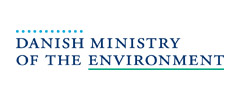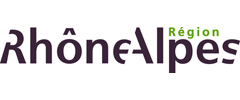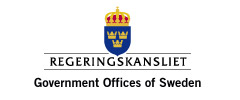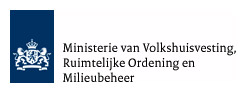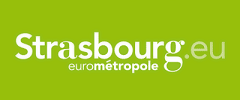Three year MATRA project Bulgaria successfully completed
“Developing a model for sustainable water and waste management in rural areas in Bulgaria” has successfully achieved its goals; tools have been developed to accommodate sustainable water and waste management in rural areas in Bulgaria.
24.07.2008 |Bistra Mihajlova

"Cutting the ribbon“ by Franta Wijchers, officer for Bulgaria of MATRA program of the Dutch Ministry of Foreign Affairs
The three year MATRA project, funded by the Dutch Ministry of Foreign Affairs, “Developing a model for sustainable water and waste management in rural areas in Bulgaria” has successfully achieved its goals; tools have been developed for ustainable water and waste management in rural areas in Bulgaria.
In total the project reached some 50.000 people via the project publications (brochures, internet) and more than 3.714 people are benefiting from improved sanitation, waste and wastewater management. 14 demonstration projects were realized, including 2 public ecosan toilet buildings at a citizens center and busstop, 2 households ecosan indoor bathroom, with toilet, shower and soilfilter, composting master programmes in 3 villages, with over 120 participating households, and effective lobby for the extention of the sewage system to the 2 only streets not connected so far (paid by the municipality, 750,000 euro). More than 800 people have actively participated in project activities and the project results were covered by more than 20 media stations (TV, radio and newspapers).

Opening ceremony of the new Ecosan toilet in the village of Stara Zagora Spa
The results
of the demonstration of these tools are that authorities have seen the
effectiveness of public participation in local strategy development and
implementation, and that the environmental protection in the target villages
has increased. Precise
policy recommendations have been formulated, based on the practical results of
the demonstration projects. The policy recommendations have been presented to
national, European and international policy makers. The policy recommendations
on sustainable waste and water management have been taken into the local and
regional development plans of Varna.
The local
authorities of Stara Zagora city (responsible for 50 villages) have taken
the policy recommendations, and – together with the partner NGO Earth Forever
Foundation – written and submitted an application for EU funding to the
Ministry of Agriculture for upscaling the waste-water model developed during
this project. WECF obtained an additional
cofunding of 16.000 euro for an ecosan feasibility study and a high level
seminar of Earth Forever Foundation, from the Dutch water sector association
Aqua for All (A4A).

Dancing children from the kindergarten in Stara Zagora Spa
Partner organisations
Rural Areas
The majority of the Bulgarians live in
rural areas. Rural areas in Bulgaria
cover about 81% of the total country territory and 42% of the population live
in the 231 rural municipalities. Bulgarians do have access to central water
supply systems, but as most of these systems were built in the sixties, water
shortages are quite common in some regions.
Only 41% of the Bulgarian population have
access to wastewater treatment facilities. Maintenance of the sewage system in
the rural areas, particularly in the villages is often overdue. Only 2.1% of
the villagers have a sewage system, most of them without wastewater treatment.
People in rural areas have no other option than to use small sewage systems and
pit latrines, although they are a serious problem for the environment and
health of the citizens.

Rural and urban areas on the territory of Bulgaria
EU Regulations
According to the new EU regulations,
Bulgaria has to comply with the requirements of Council Directive 91/271/EEC on
urban wastewater treatment – by December 31, 2010 for all agglomeration with a
population above PE 10 000, and by December 31, 2014 for agglomerations with PE
between 2 000 and 10 000. The Rural
Development Program 2007-2013 has made the water and sewage infrastructure for
the rural municipalities a priority. In addition, the steps to be taken within
the settlements with a population of less than 2000 inhabitants in the 231
municipalities are the following and they are under the Rural Development
program of the Ministry of Agriculture and Food:
- Construction/reconstruction/rehabilitation of the water
supply system and related facilities;
- Construction/reconstruction/rehabilitation of the
sewage system and related facilities, including wastewater treatment
plants;
- The programs have to start results till end of 2013, and after that have to serve as a base for further development of the sustainable and replicable management of the wastewaters.
Project results:
In the project “Developing a model for sustainable
water and waste management in rural areas in Bulgaria“ the following results
have been achieved:
1.Sulitsa and Stara Zagora Spa (Stara Zagora
Municipality) project
results implemented by Earth Forever Foundation (Stara Zagora):
- Urine diverting (EcoSan) ecosan systems for 2 households and for the cultural center in the village.
- The ecosan system in the cultural centre consists of 2 UDD toilets, 2 urinals, hand-washing facility; soil filter; experimental garden for urine application.
- Urine diverting (EcoSan) system in the centre of Stara Zagora Spa at the bus stop was constructed with 2 waterless urinals, 2 toilets for women and 1 toilet for men
- Soil-filter for grey water treatment at 1 household and the cultural center in Sulitsa and in in the centre of Stara Zagora Spa .
- Experimental garden for urine and human waste compost was established in 1 household.
- Household composting in 36 households.
- Training on household composting for villagers and training of local Training of trainers
- Training on EcoSan and soil-filter construction and maintenance.
- High level conference about Ecosan in Sofia
Urine diverting (Ecosan) system at the cultural club
in Sulitsa
The indoor dry urine diverting toilets
at the cultural club have been tested throughout the year 2007 to greatest
satisfaction by 320 people. The dry toilets are clean, do not smell, have wash
basins and have a seat model, not a squatting model, which is most appreciated
by the older women in the village. The indoor dry urine diverting toilets for
the 2 households are also functioning to great satisfaction, and the urine has
been tested in the experimental garden, with very positive effects. A video 'Ecosan for Sulitsa' has been made on this part of
the project.

Dry urine diverting toilet built for the cultural club in village Sulitsa, Stara Zagora Municipality
Urine diverting (Ecosan) system in the centre of Stara
Zagora Spa
The ecosan
toilet building near the bus stop at Stara Zagora Spa will in total serve 3000 people. Due to a
building problem which needed to be corrected, the bus stop toilet has only been
officially inaugurated in May 2008 in the presence of a representative of the
MATRA program. Franta Wijchers, officer for Bulgaria of the Matra Program of
the Dutch Ministry of Foreign Affairs. The opening ceremony was also attended
by the Mayor of Stara Zagora Spa, the Vice Mayor of the Stara Zagora
Municipality, Earth Forever and WECF representatives.
Raise awareness
To raise awareness about ecological sanitation as an
alternative for waste water and human waste management for rural areas in
Bulgaria, WECF and its partners organised a High Level Seminar about Ecosan in
Sofia in April 2007. The seminar was
an integral part of the long-term effort of WECF – The Netherlands and Earth
Forever – Bulgaria, to raise awareness about ecological sanitation. The seminar introduced ecological sanitation as an
alternative concept for solving sanitation problems in rural areas in Bulgaria and
presented national and international experiences to 80 governmental officials,
representatives of regional agencies, local governments, business, NGOs from
environmental, health, agriculture and rural development, and water and
sanitation sectors, as well as representatives of financial institutions.
International scientists and practitioners presented
their experience with decentralized ecological waste-water and sanitation
system. The topics discussed varied from ecological sanitation technologies,
European wastewater legislation to potential business opportunities.
The seminar was organized in close collaboration with: WECF, WASTE, Kiwa – The Netherlands, Ministry of Agriculture and Food, Ministry of Health, Aqua for All – The Netherlands.
2. Village Topoli (Varna Municipality) - project results implemented by Institute for Ecological Modernisation (Varna):
- Public
campaign for accelerating the process of completing the sewage system in
Topoli
- Master
Composter’s Programme
- Water-saving
irrigation system and market study
- High Level seminar in Varna “Specific municipal waste streams and controversial practices in their management“

Professor Thor Axel Stenström giving presentation during the High level Seminar on Sanitation in April 2007, Sofia
Completing the sewage system in Topoli
As a result of the public campaign for accelerating the
process of completing the sewage system in Topoli the Municipality of Varna
allocated for the year 2008 sufficient funds in the budget to connect almost
100% of the households to the central sewer. In total 3 streets are getting
sewage, and 250 people are being given access to safe sanitation. The amounts
allocated are 1.500.000 BGN (750.000Euro). The success in this activity
indicates that indeed the project created a model for mobilizing public
participation in the decision-making process and that this model can be bring
excellent results if all relevant stakeholders are involved.

Master Composter’s Program
The total number of composting households in Topoli is
about 100, which is 10% of the total households in the village. The publicity
events implemented by IEM during the last project period provoked the interest
for starting a master composting programme in one more village in Varna
district – village of Tsarevtsi.

Master composting program village Topoli, September 2006
Water saving irrigation system
The water saving irrigation system was constructed in
the school yard in Topoli. The water-saving system harvests water
from the roof of the gym in the school yard through zinc gutters, connected to
pipes that surround the building. The water passes through a simple filter,
after which it goes to 8 plastic tanks with a total volume of 9.6 m3. This system saves about
113.3 m3/ of water each year.

During the implementation of the tools a High
Level seminar in Varna “Specific municipal waste streams and controversial
practices in their management" took place. The main part of the conference was
dedicated to reporting back from the study visit to the Netherlands by the
study visit participants and lessons learned for waste management in rural
areas in Bulgaria (villages, villa areas, resort settlements).
During the 3 years project tools
have been developed for sustainable management of water and waste in rural
areas in Bulgaria. These tools have been tested and
described throughout the project and include following components:
- baseline study analysis (inventory of data, analysis of legislation, water testing)
- health and environment surveys
- multi-stakeholder meeting to analyse barriers and catalysts
- expert training and sharing of best practices
- multi-stakeholder prioritization and strategy development
- development and implementation of demonstration projects,
- applied research on the results of the demonstration projects,
- development of policy recommendations,
- involvement of senior experts and government representatives in advisory board and high level meetings
- awareness raising via press and media,
- study visits within Bulgaria and to the Netherlands.
The project reached about 50.000 people via the project publications (brochures, internet), more than 3.714 people are benefiting from improved sanitation, waste and wastewater management, more than 800 people have actively participated in project activities and the project results were covered by more than 20 media stations (TV, radio and newspapers).
bistra.mihaylova(at)wecf.eu
sascha.gabizon(at)wecf.eu
margriet.samwel(at)wecf.eu
Related News
Meet the Winners of the Gender Just Climate Solutions Award at COP24
On the 70th anniversary of the Universal Declaration of Human Rights, we awarded Gender Just Climate Solutions Winners at the climate negotiations in Katowice, Poland
11.12.2018
Invitation: Gender Just Climate Solutions Award 2018
10 December, COP24 Katowice
04.12.2018
Getting to the Future We Want
4-7 November, Brussels: European Environmental Bureau’s (EEB) Annual Conference
12.11.2018
GoodFood4All
WECF and partners all over Europe start GoodFood4All Campaign
06.11.2018
#Ruralwomen: join our Women2030 campaign!
15.10.2018



















